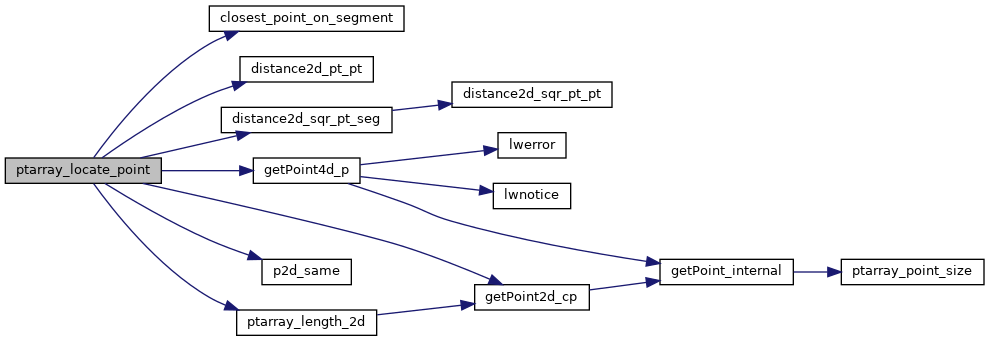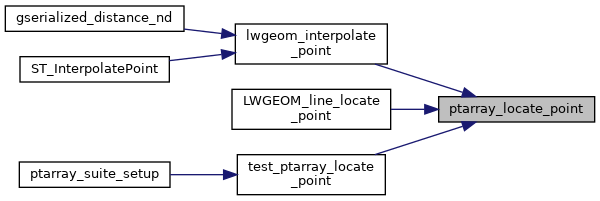◆ ptarray_locate_point()
| double ptarray_locate_point | ( | const POINTARRAY * | pa, |
| const POINT4D * | p4d, | ||
| double * | mindistout, | ||
| POINT4D * | proj4d | ||
| ) |
Definition at line 1311 of file ptarray.c.
double distance2d_pt_pt(const POINT2D *p1, const POINT2D *p2)
Definition: measures.c:2397
int getPoint4d_p(const POINTARRAY *pa, uint32_t n, POINT4D *point)
Definition: lwgeom_api.c:125
double distance2d_sqr_pt_seg(const POINT2D *p, const POINT2D *A, const POINT2D *B)
Definition: measures.c:2407
static const POINT2D * getPoint2d_cp(const POINTARRAY *pa, uint32_t n)
Returns a POINT2D pointer into the POINTARRAY serialized_ptlist, suitable for reading from.
Definition: lwinline.h:91
void closest_point_on_segment(const POINT4D *p, const POINT4D *A, const POINT4D *B, POINT4D *ret)
Definition: ptarray.c:1263
double ptarray_length_2d(const POINTARRAY *pts)
Find the 2d length of the given POINTARRAY (even if it's 3d)
Definition: ptarray.c:1708
Definition: liblwgeom.h:375
Definition: liblwgeom.h:399
References closest_point_on_segment(), distance2d_pt_pt(), distance2d_sqr_pt_seg(), getPoint2d_cp(), getPoint4d_p(), LWDEBUG, LWDEBUGF, POINTARRAY::npoints, p2d_same(), ptarray_length_2d(), POINT2D::x, POINT4D::x, POINT2D::y, and POINT4D::y.
Referenced by lwgeom_interpolate_point(), LWGEOM_line_locate_point(), and test_ptarray_locate_point().
Here is the call graph for this function:

Here is the caller graph for this function:
